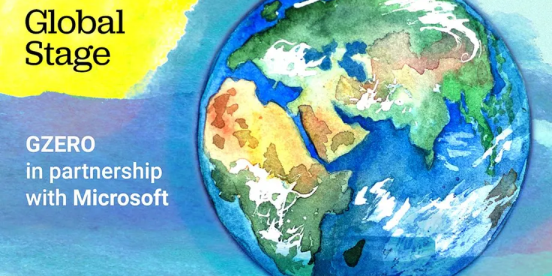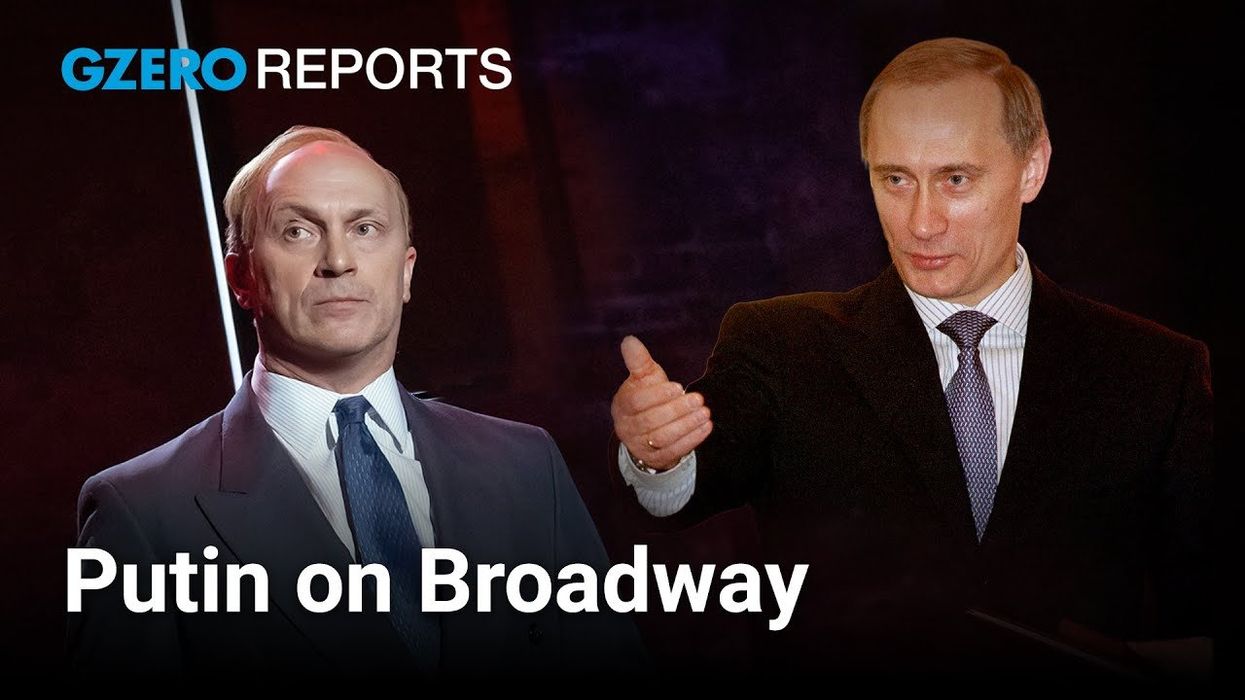We have updated our Privacy Policy and Terms of Use for Eurasia Group and its affiliates, including GZERO Media, to clarify the types of data we collect, how we collect it, how we use data and with whom we share data. By using our website you consent to our Terms and Conditions and Privacy Policy, including the transfer of your personal data to the United States from your country of residence, and our use of cookies described in our Cookie Policy.
Israel-Gaza situation has Biden facing bipartisan criticism
Ian Bremmer's Quick Take: When the war started, the US was not aligned on Israel policy with all of its allies out there. Increasingly today it is, with the entirety of the G7 and with allies in the Gulf, in the Middle East. And a US policy—like its policy on Ukraine—where the US is leading but is coordinating security policy with everyone, is a much stronger policy than one where the Americans are by themselves. Biden is now in a position where he's increasingly by himself internationally, and he's also increasingly by himself at home.
Need to believe. Working to build better community health systems in Africa
A new project seeks to strengthen healthcare systems across sub-Saharan Africa.
Covering Columbia's campus protests as a student and GZERO reporter
GZERO writer and Barnard senior Riley Callanan shares her experience reporting on the pro-Palestine student protests that engulfed Columbia University ahead of graduation.
Why campus protests worsen divisions, and how to mediate: Advice from Eboo Patel
Listen: On this episode of the GZERO World Podcast with Ian Bremmer, Eboo Patel, founder of Interfaith America, advocates for cooperation over division on college campuses in response to protests, highlighting the need for civil discourse and pointing out that despite some instances of violence, most campuses engage in constructive dialogue.
Listen: On this episode of the GZERO World Podcast with Ian Bremmer, Eboo Patel, founder of Interfaith America, advocates for cooperation over division on college campuses in response to protests, highlighting the need for civil discourse and pointing out that despite some instances of violence, most campuses engage in constructive dialogue.
Whether you are for or against the protests happening across the country, one thing is clear: They've caught the world's attention. Some have escalated into violence, as seen at UCLA, Texas, and Columbia University. On the podcast, Patel discusses his efforts on over 600 college campuses to foster unity. His central message: "Cooperation is better than division."
Patel emphasizes the need for universities to shift their focus from confrontation to cooperation, advocating for environments that promote civil discourse. He suggests initiatives such as teach-ins and dialogues to explore constructive solutions to complex issues. Patel criticizes the default mode of many universities. "I think the problem here, the thing that universities could control, which I think that they have gotten wrong in many cases over the course of the past five years, is the default mode has been set to confrontation, not cooperation."
While it may be challenging to find common ground, Patel highlights that the majority of college campuses have managed to engage in debates about the Israel-Gaza conflict without resorting to chaos or violence. He explains, "The media, for good reasons, covers planes that crash and not planes that land." This suggests that the instances of violence and chaos are outliers and that civil discourse is still prevalent on many campuses.
Subscribe to the GZERO World Podcast on Apple Podcasts, Spotify, or your preferred podcast platform, to receive new episodes as soon as they're published.
Apple wants its own chips
Running AI models requires higher-grade chips like NVIDIA's graphics processors, which have become industry standard.
Is Ukraine finally getting a Russian asset payout?
Remember when the EU froze billions of euros worth of Russian assets following Vladimir Putin’s invasion of Ukraine?
Why campus protests worsen divisions, and how to mediate: Advice from Eboo Patel
Listen: On this episode of the GZERO World Podcast with Ian Bremmer, Eboo Patel, founder of Interfaith America, advocates for cooperation over division on college campuses in response to protests, highlighting the need for civil discourse and pointing out that despite some instances of violence, most campuses engage in constructive dialogue.
Covering Columbia's campus protests as a student and GZERO reporter
GZERO writer and Barnard senior Riley Callanan shares her experience reporting on the pro-Palestine student protests that engulfed Columbia University ahead of graduation.
Building both financial and climate resilience through fintech
By bringing more people into the digital economy, fintech solutions can connect vulnerable users to services such as loan forgiveness, microinsurance, or savings opportunities to cushion the effects of climate shocks. To magnify these efforts, the Mastercard Center for Inclusive Growth joined the Climate Innovation for Adaptation and Resilience Alliance, a cross-sector coalition dedicated to accelerating and scaling innovation in digital finance for low-income people affected by climate change. Both organizations want to train the wider financial inclusion community to approach their work with environmental sustainability in mind.
Think you know what's going on around the world? Here's your chance to prove it.
You vs. the News: GZERO's Weekly News Quiz
Think you know what's going on around the world? Here's your chance to prove it.
WHAT.
GZERO Media is a company dedicated to providing the public with intelligent and engaging coverage of global affairs. It was created in 2017 as a subsidiary of Eurasia Group, the world's leading political risk analysis firm.
WHY.
Interest in global affairs is soaring these days, and yet traditional sources of insight are either too politicized, too polarizing, or too boring.
We believe there's a better way to help people understand the forces that are reshaping their world. By delivering deep insight with a light touch. By taking a global view. By pushing beyond predictable opinions and formats to inform, engage, challenge, and entertain.
HOW.
Our approach is at once journalistic, analytical, and creative. We not only explain the most important stories in the world today — we tease out the critical connections between them, so you can be smart about what comes next.
Whether you get the daily dish on global affairs from our GZERO Daily newsletter, see global leaders in a different light onGZERO World with Ian Bremmer, or get your fix of laughter and outrage from our political satire show PUPPET REGIME, we hope that you come away with a broader and deeper understanding of the world.
WHAT'S BEHIND OUR NAME?
For decades, a small number of leading countries regularly came together – in formats like the Group of Seven (G7) or the wider Group of 20 (G20) – to seek collective solutions to the world's most pressing challenges. What's more, the United States used its power, for better or worse, as a kind of "G1" to underwrite global norms of global commerce, finance, and security.
Today, that order is slipping away. No single power or group of powers is willing or able to set a global agenda. It's a world of many pretenders, but no leaders. Welcome to the GZERO.
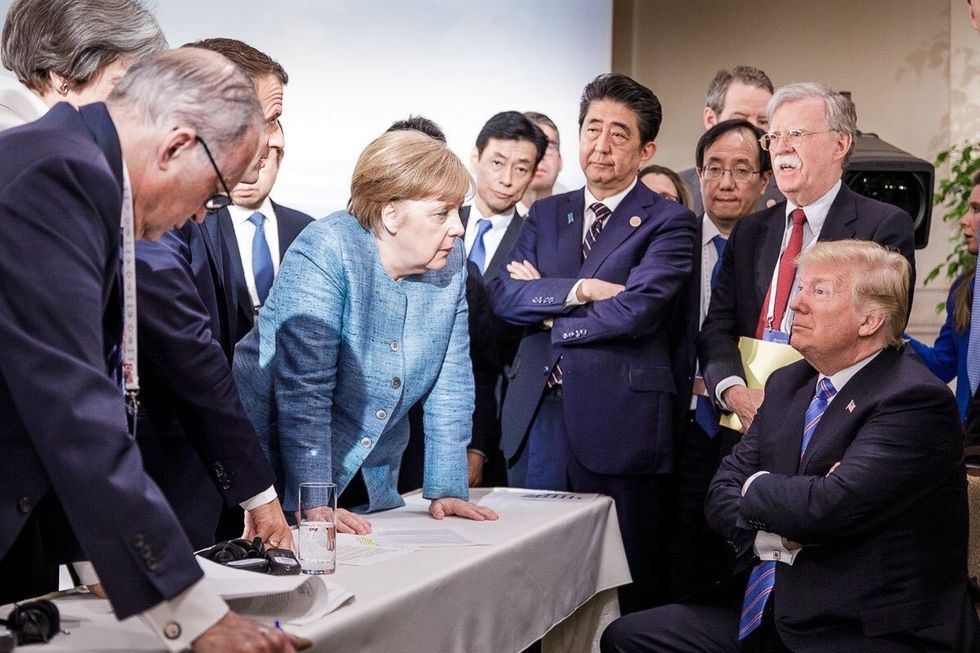
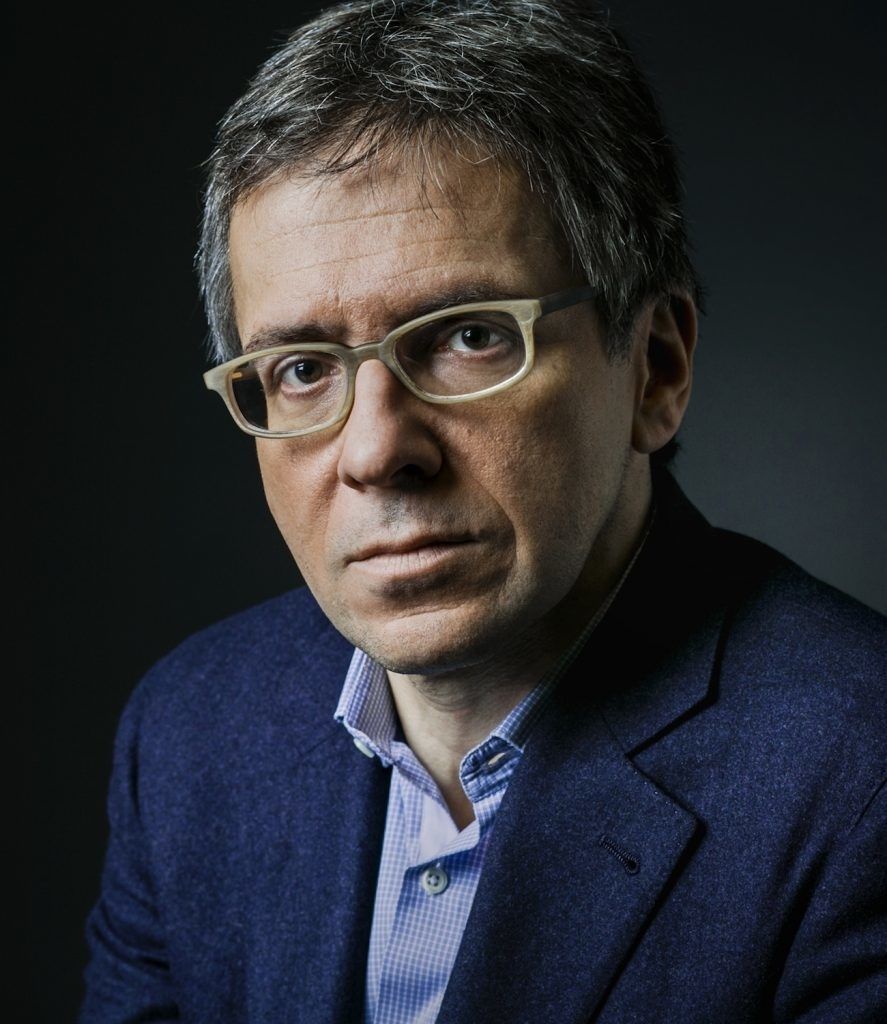
Ian Bremmer
Ian Bremmer is President and Founder of GZERO Media. He hosts the weekly digital and broadcast show, GZERO World with Ian Bremmer, where he explains the key global stories of the moment, sits down for an in-depth conversation with the newsmakers and thought leaders shaping our world, and takes your questions.
Ian is also the President and Founder of GZERO Media's parent company, Eurasia Group, the leading global political risk research and consulting firm. Ian is a New York Times bestselling author of eleven books including "Us vs Them: The Failure of Globalism," "Every Nation for Itself: Winners and Losers in a G-Zero World," "The End of the Free Market: Who Wins the War Between States and Corporations?" and "Superpower: Three Choices for America's Role in the World." His latest book, "The Power of Crisis," draws lessons from global challenges of the past 100 years—including the pandemic—to show how we can respond to three great crises unfolding over the next decade.
Ian earned a master's degree and a doctorate in political science from Stanford University, where he went on to become the youngest-ever national fellow at the Hoover Institution. Although he might not admit it, Ian's secretly jealous of his puppet's interviews with the world's most powerful leaders.
Evan Solomon
Evan Solomon is the publisher of GZERO Media and a member of Eurasia Group’s Management Committee. He is excited to grow the GZERO brand with engaging new offerings and partnerships that help viewers around the globe better understand the rapidly changing world in which they live.
Evan has been one of Canada’s preeminent journalists for more than 25 years. Prior to joining GZERO, he was the host of CTV’s nightly political program "Power Play" and of Canada’s most-watched political TV show, the Sunday morning "Question Period." He also hosted "The Evan Solomon Show," a daily iHeartRadio/Bell Media radio program.
Evan has a long history of building brands and creating programs, starting as the co-founder of the pioneering Shift Magazine, an international digital culture magazine, and as the founder of the Sirius XM show and podcast "Everything is Political." He has also hosted the PBS series "Masters of Technology" and CBC shows such as "Power and Politics," "CBC News: Sunday," "The House," and "FutureWorld." Evan has reported on events from around the world, covering Europe, Asia, and the Middle East, and he has interviewed key political figures, from prime ministers and presidents to the Dalai Lama. Evan’s best-selling books include "Fueling the Future: How the Battle Over Energy is Changing Everything" and "Feeding the Future: From Fat to Famine, How to Solve the World’s Food Crisis.” He has also been a columnist for Macleans and The Globe and Mail.
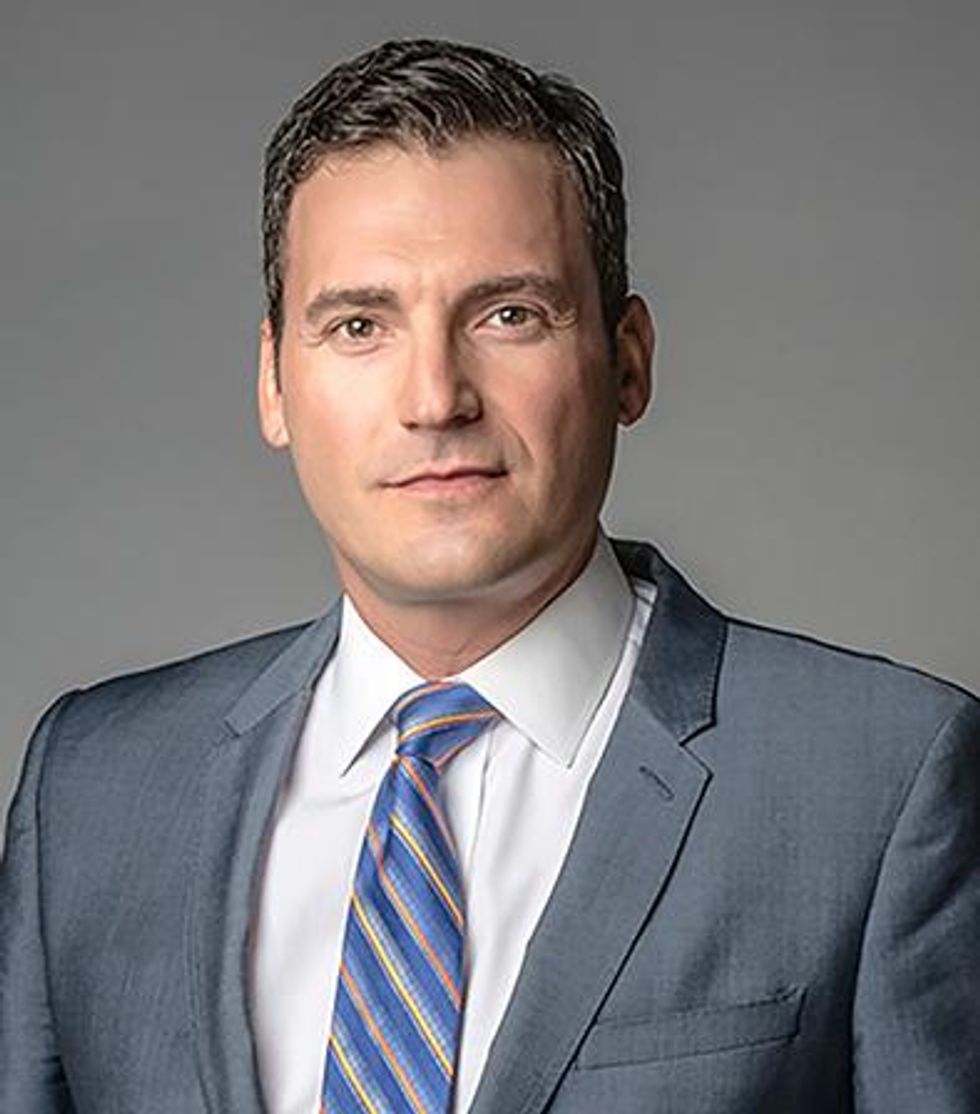
Join us for more Global Stage events in 2024
From Davos and the Munich Security Forum to the UN General Assembly, our livestream discussions convene heads of state, business leaders, technology experts from around the world for critical debate about the geopolitical and technology trends shaping our world.
What impact will AI have on gender equality?
At the current rate of progress toward gender equality, the World Economic Forum estimates it will take 131 years for women to attain parity in income, status, and leadership. While technology is a powerful tool to help close the gender gap, it can also be weaponized.
